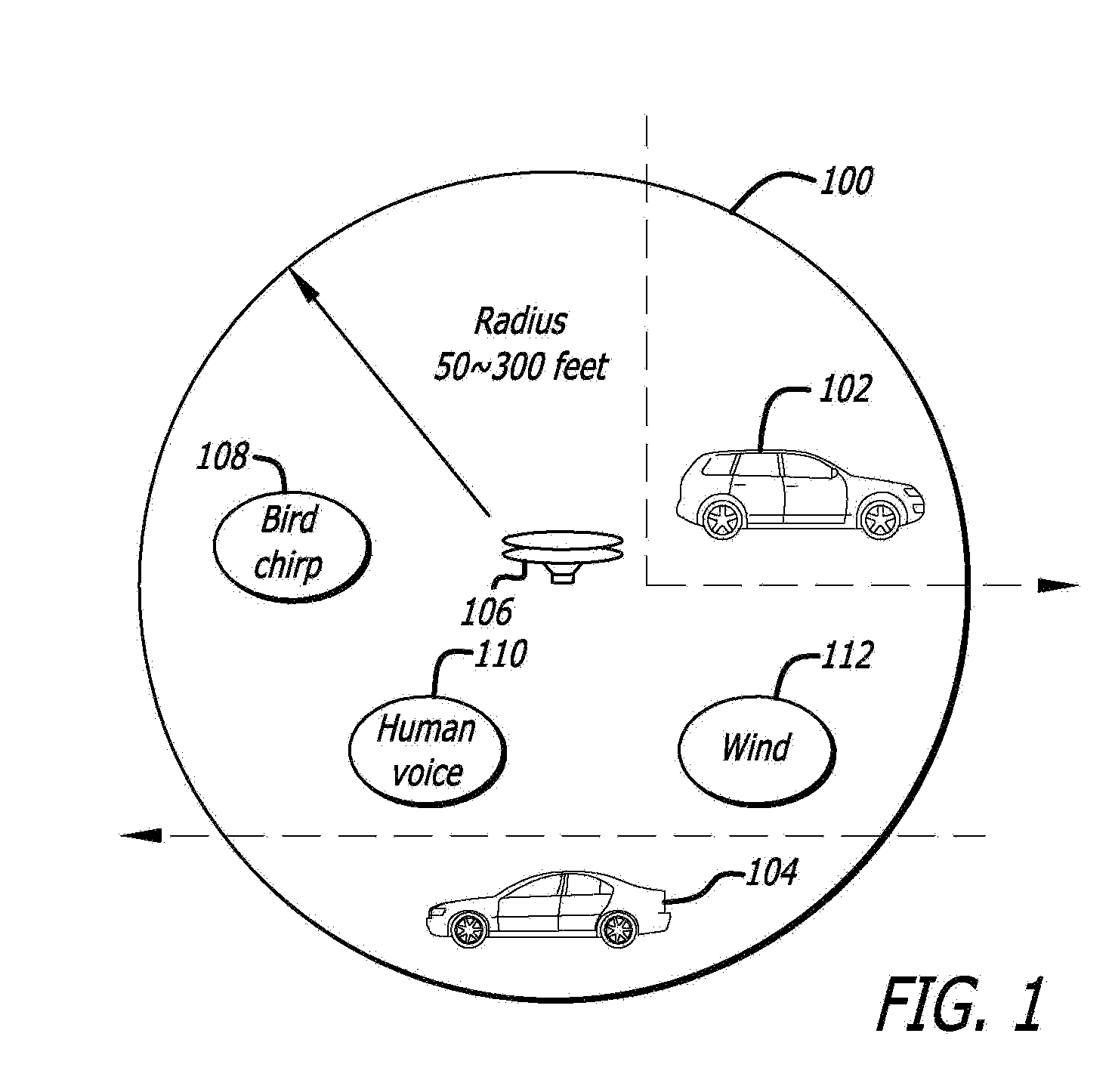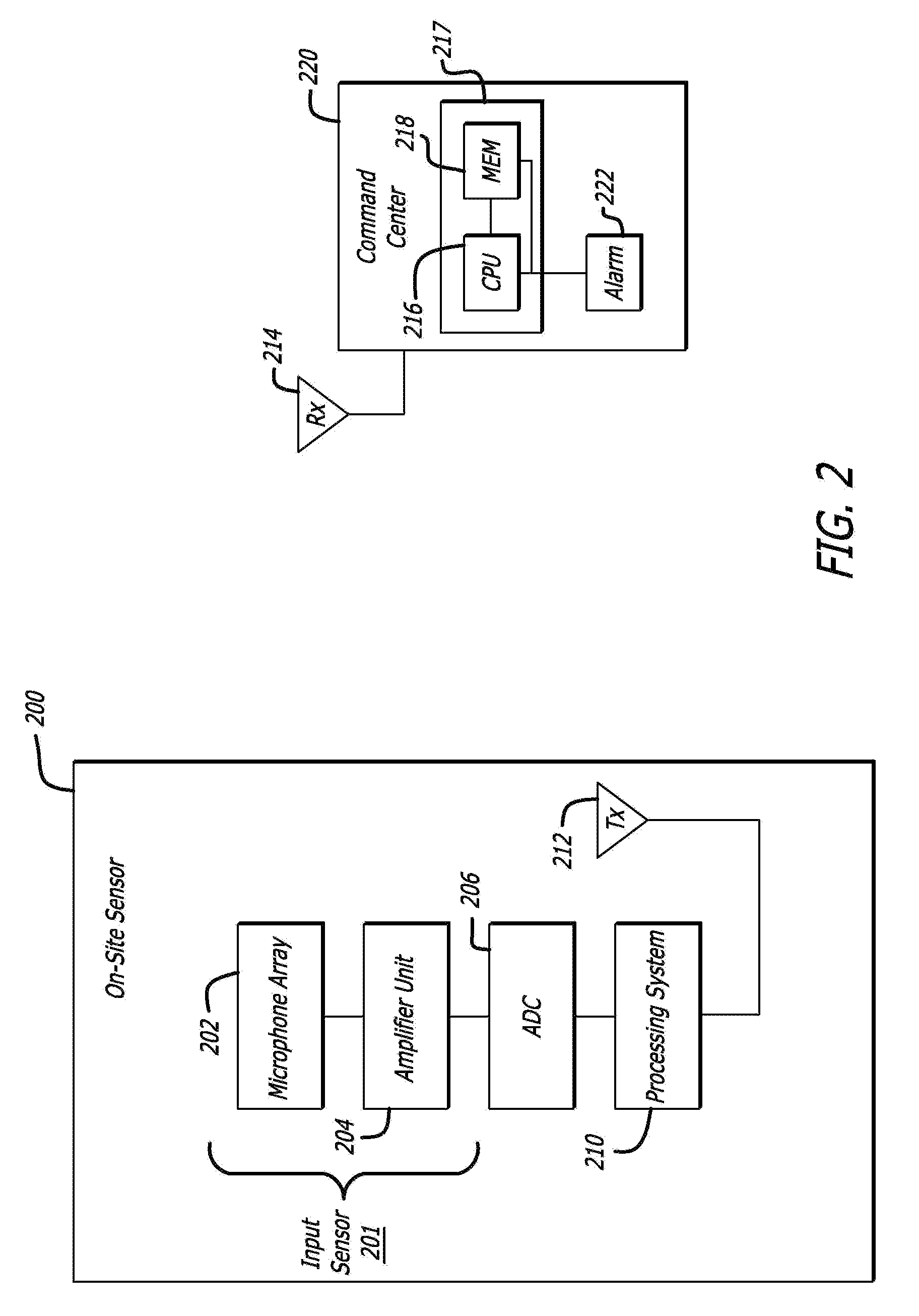Detection and classification of running vehicles based on acoustic signatures
a running vehicle and acoustic signature technology, applied in the field of acoustic recognition, can solve the problems of inability to effectively distinguish between different arbitrary classes of vehicles, inability to effectively account for these variables, and inability to develop effective techniques to account for acoustic sounds of interest from running vehicles
- Summary
- Abstract
- Description
- Claims
- Application Information
AI Technical Summary
Benefits of technology
Problems solved by technology
Method used
Image
Examples
Embodiment Construction
[0034]Illustrative embodiments are now discussed. Other embodiments may be used in addition or instead. Details that may be apparent or unnecessary may be omitted to save space or for a more effective presentation. Conversely, some embodiments may be practiced without all of the details that are disclosed.
[0035]Disclosed herein is a method, system and apparatus for the acoustic signature recognition of running vehicle sources. The system may detect running or approaching vehicles of arbitrary types and recognize several classes of vehicles with minimum error rates. The technique may be used in a variety of applications. One set of applications may generally involve the protection of an asset in a security context. As an example, the recognition system may comprise a security system for monitoring a protected military installation from unauthorized vehicle intrusions. The recognition system may be designed to recognize classes of approaching vehicles that are capable of being loaded ...
PUM
 Login to View More
Login to View More Abstract
Description
Claims
Application Information
 Login to View More
Login to View More - R&D
- Intellectual Property
- Life Sciences
- Materials
- Tech Scout
- Unparalleled Data Quality
- Higher Quality Content
- 60% Fewer Hallucinations
Browse by: Latest US Patents, China's latest patents, Technical Efficacy Thesaurus, Application Domain, Technology Topic, Popular Technical Reports.
© 2025 PatSnap. All rights reserved.Legal|Privacy policy|Modern Slavery Act Transparency Statement|Sitemap|About US| Contact US: help@patsnap.com



